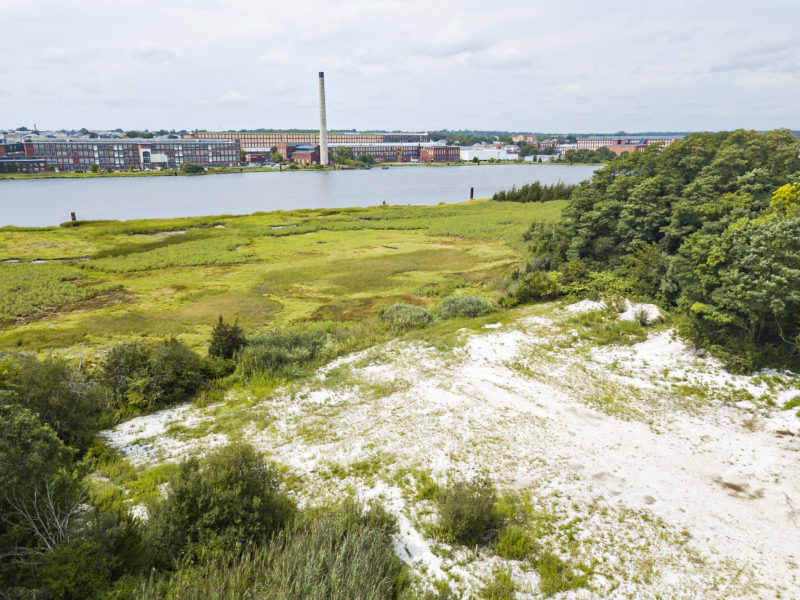Cleanup at former auto salvage yard will help advance renewal of the Acushnet River
For over half a century, old cars and shipping containers have been a visible landmark on a patch of land on the east bank of the Acushnet River, bordering acres of salt marshes off Beech Street. Today, because of efforts by the Buzzards Bay Coalition, this former auto salvage yard holds only clamshells and grass.
This summer the Coalition, working in close partnership with its subsidiary the Acushnet River Reserve, Inc., acquired this property, previously the site of Riverside Auto Sales and Salvage, and took the first step towards making it part of a publicly accessible waterfront park and natural preserve.

The former site of Riverside Auto & Salvage, now cleared of the cars and shipping containers seen here for decades, borders a stretch of salt marsh along the Acushnet River.
By protecting this piece of the Acushnet River, the Coalition and its partners are furthering a larger effort to rejuvenate land around the river and upper New Bedford Harbor. This effort has already led to the restoration of former industrially-owned lands, like P.J. Keating Woods and The Sawmill, in the growing Acushnet River Reserve.
The Riverside Auto site will also play an important role in the federal Environmental Protection Agency (EPA)’s Superfund cleanup of salt marshes that border New Bedford Harbor. This property will provide space for the EPA to access nearly three-quarters of a mile of salt marsh that border this property, where the EPA will remove toxic pollution from chemicals called polychlorinated biphenyls (PCBs).
Throughout the mid-20th century, chemical companies on the harbor dumped PCBs into the water. PCBs are extremely harmful to fish and wildlife and have been proven to cause cancer in humans. This toxic pollution still lingers in the sediments at the bottom of the harbor and bordering salt marshes – particularly in the upper harbor and the Acushnet River.
Following the EPA’s cleanup, the Riverside Auto site itself is in need of restoration. The Coalition will work with both the EPA and Massachusetts Department of Environmental Protection to complete a cleanup of the junkyard property, restore natural vegetation, and develop the site as a park for public access.
In the future, this site will help expand waterfront access to the river, with trails one day leading visitors to the shoreline to enjoy striking views of its salt marshes and New Bedford Harbor.
Restoring this former junkyard is just one step in a larger, long-term plan for the future of this urban river and its natural environment. The Coalition is helping to lead the effort to advance this vision, of a greener, safer Acushnet River that everyone can enjoy.